Further Particulars
Further Particulars – About Imperial College London
Overview
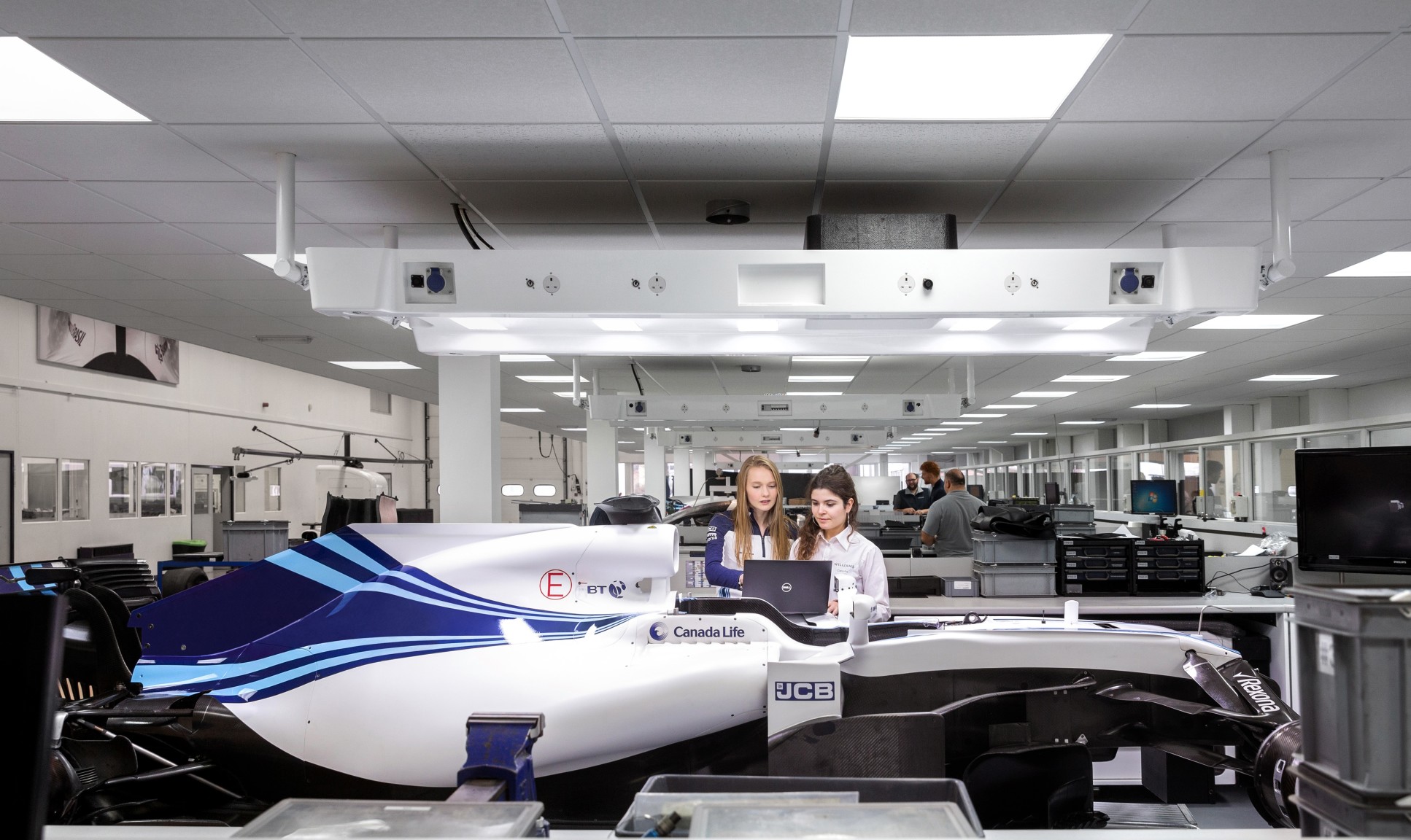
Imperial College London is one of the world’s greatest universities, renowned for its ground-breaking research, talented community of staff, students and alumni and its international reach.
With a mission to achieve enduring excellence in research and education in science, engineering, medicine and business for the benefit of society, the College was founded in 1907 in South Kensington, bringing together nineteenth century institutions including the Royal College of Science, Royal School of Mines and City and Guilds College. Today Imperial collaborates extensively with neighbouring institutions, including the Royal College of Art and the Royal College of Music.
From its location in this great cultural quarter, Imperial provides one of the world’s best educations in STEMMB subjects for more than 20,000 students, over half of whom come from overseas, reflecting its status as the UK’s most international university.
Throughout its history, the College has been involved in many major breakthroughs, including the discovery of penicillin and the creation of the hologram. This tradition has continued with recent innovations such as wirelessly transferring power to drones in flight, the discovery of a new form of light and major new research in climate change, amongst much else.
Imperial has four academic faculties – Engineering, Medicine, and Natural Sciences and the Imperial College Business School, as well as a significant number of interdisciplinary research centres focusing on challenging world problems.
The College’s mission is supported by 9,000 highly diverse staff, who collaborate widely in the UK and internationally, often across disciplines. In 2021-2022 the College had a total turnover of £1,163 million, of which £368 million directly supported research through grants and contracts.
We want to create a world in which society is healthy, sustainable, smart and resilient. Our Academic Strategy provides us with that focus and will help us realise that ambition. It draws on our ground-breaking fundamental research, our creativity, imagination and ability to develop new insights and knowledge to help make sustainable change and improve our world. It sets out our vision for an improved student experience that will prepare our students to lead, innovate and drive change. It reflects how we want to be as a community.
The Academic Strategy builds on the aspirations of the College Strategy and department and faculty strategies, and connects up with other strategies including Learning and Teaching, Advancement and Estates.
The College’s success is recognised all over the world, as is evidenced by daily coverage of Imperial discoveries and innovations in the international media and claims many distinguished members, including 14 Nobel laureates, three Fields Medallists, and members of the Royal Society and National Academies. Imperial places excellence in education at the core of its ethos and the College is consistently rated as one of the world’s best universities in global university rankings.
This follows a series of achievements for the College over the past year, including its best-ever results in the UK’s Research Excellence Framework (REF) and a Queen’s Anniversary Prize in recognition of pioneering work during the COVID-19 pandemic. Imperial was named by the Guardian University Guide as the University of the Year 2023. This achievement follows Imperial’s ranking as University of the Year 2022 and University of the Year for Student Experience 2022 by the by the Times and Sunday Times Good University Guide, and overall student satisfaction reported at 82% in the National Student Survey 2022. You can learn more about these achievements on our website.
Leadership and Governance
Imperial has a leadership model comprising the President Professor Hugh Brady., and the Provost, Professor Ian Walmsley FRS.
As the President, Professor Hugh Brady is the College’s Chief Executive Officer, accountable to Council for the overall management of the College. She leads the delivery of Imperial’s Strategy 2020 - 2025. Under her leadership, Imperial has strengthened its ties with policymakers, industry, philanthropists and alumni. In addition, under her watch our new White City Campus is coming to life.
She works in close partnership with the Provost and Vice-Presidents to focus on strengthening and building external relationships with philanthropists, corporations, international partners and government leaders.
The Provost, Professor Ian Walmsley FRS, is the Chief Academic Officer, upholding Imperial’s very high academic standards and its core academic mission. He has direct responsibility for Imperial’s major academic units, via the Faculty Deans, and the College’s teaching and research mission, via the Vice-Provosts for Education and Research and Enterprise. The Provost oversees human and intellectual resources and is responsible for promoting an inclusive and excellent staff and student community.
The President and Provost chair the President’s Board and Provost’s Board, comprising the leadership of the University and setting and delivering the strategic and day-to-day business of the College.
Imperial’s Council, chaired by Mr John Allan CBE, includes external lay members, the Deans and Provost, President and Chief Financial Officer and is responsible for the overall governance of the College.
Imperial’s Court brings together a diverse group of alumni and members of local organisations, who meet regularly and are committed to helping the College achieve its strategic aims. Members of Court regularly attend expert briefings at the College, which provide an insight into our research and education.
Education and Research
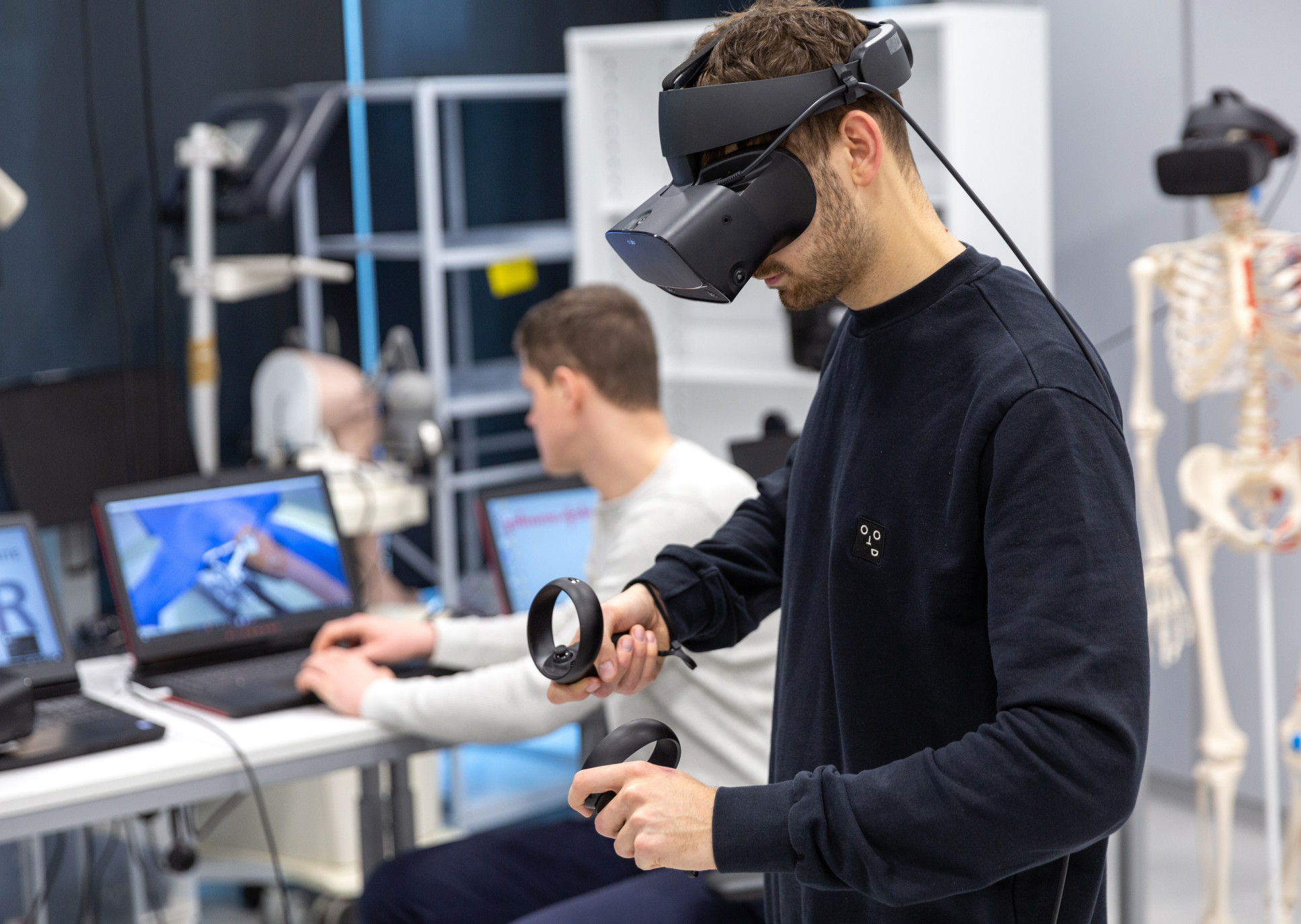
Imperial is a top global university thanks to its cutting-edge and influential research. Students come here to learn from, and work with, some of the best researchers currently working in their field. We also aim to create a globally leading learning and teaching environment – students who want to make their mark in the world can learn the skills to do this at Imperial.
The College’s Learning and Teaching Strategy is connected directly to the College’s overall strategy and seeks to embed learning in a vibrant, research-led and entrepreneurial environment, as well as enriching the student experience.
Matching innovative pedagogy with cutting-edge online and digital technology, the College’s aim for its graduates is that they will:
- demonstrate deep conceptual understanding of their discipline and work effectively in multi-cultural, international teams and across disciplinary boundaries;
- approach challenges with curiosity, critical thinking and creativity, and apply their skills to tackling complex real-world problems;
- understand and value different cultures and perspectives while developing into independent learners, and displaying a strong sense of personal and professional integrity.
When it comes to research, at Imperial we share ideas, expertise and technology to find answers to the big scientific questions and tackle global challenges.
Our research is also defined by its internationalism, innovation and impact. Two-thirds of it involves an international collaborator, spanning more than 130 countries, making us the UK’s most international university.
And our talented staff don’t just cross borders; they transcend traditional academic disciplines to tackle major societal issues. Challenges like climate change, future energy supplies, antibiotic resistance and national security can only be tackled by bringing together highly collaborative, multidisciplinary teams. Such partnerships require patience and curiosity and thrive in environments in which the facilities and research ethos are outstanding.
Over the past year, Imperial has brought its world-leading expertise to the frontline of the COVID-19 pandemic. Our work has ranged from the COVID-19 Response Team, who have worked with health services and governments around the world to plan responses to the pandemic, to large-scale socio-behavioural research projects and public and community involvement initiatives.
There are many strands to a world-class research university. Imperial undertakes fundamental, discovery-led research while encouraging technology transfer, policy interventions, start-ups and industry connections. A commitment to excellence in all of these underpins everything we do.
Investment in Imperial’s Impact
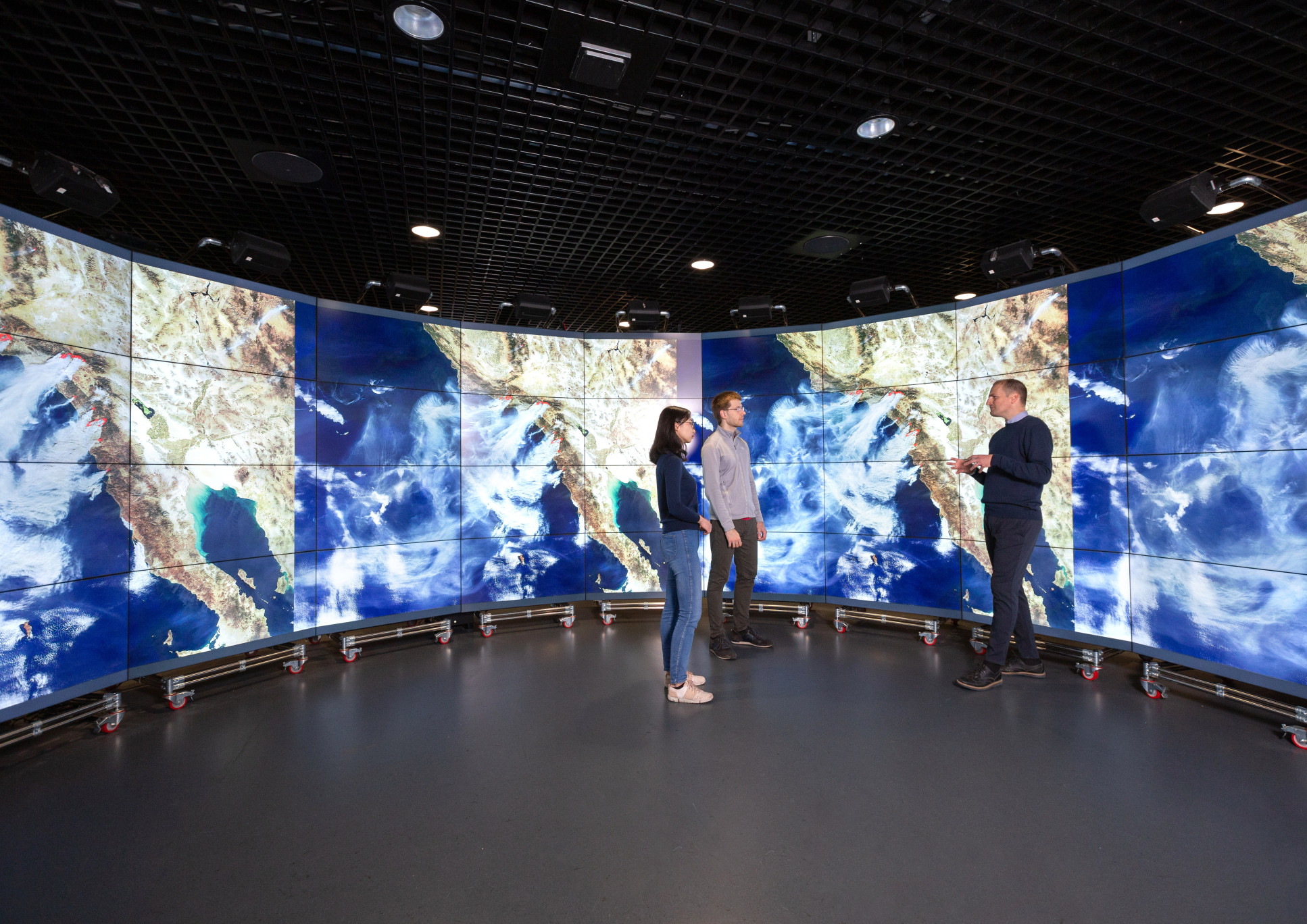
Imperial conducts research in new and emerging fields as well as consolidating and developing advances across its core disciplines, and has a rich and lively partnership with the worlds of technology, business and finance.
There are numerous examples of the College’s entrepreneurial drive to produce world-class, high-impact research and education. Recent initiatives include the establishment of the Dyson School for Design Engineering, the Royal British Legion Centre for Blast Injury Studies, and the Brevan Howard Centre for Financial Analysis (made possible by a generous donation from an Imperial alumnus). It also includes a new range of scholarships and bursaries aimed at supporting the education of tomorrow’s world-leading researchers.
Imperial has cross-faculty institutes focusing on global challenges: the Data Science Institute; Energy Futures Lab; Institute of Global Health Innovation; Grantham Institute for Climate Change and the Environment; Institute for Molecular Science and Engineering; Institute of Security Science and Technology and Institute of Infection
These Global Institutes were created to address some of the most important issues facing the world today, from health inequalities and the dangers of global warming to the opportunities created by big data and molecular engineering. These institutes are outward-facing, collaborating with policymakers and businesses to apply new knowledge and provide independent scientific advice.
Many of these institutes have been developed both with generous donations from former alumni and through partnerships with business and industry in related sectors. Imperial has more than 210,000 alumni forming an international community of outstanding scientists, engineers, medical professionals and business leaders.
The commercialisation of intellectual property is central to the College’s aim to maximise the potential impact of its research. There is a dynamic and growing Enterprise culture among students and staff with numerous programmes of support, incubators and networking opportunities. The Research Office, and faculty-based research services teams provide essential support for the active research community.
Imperial Locations
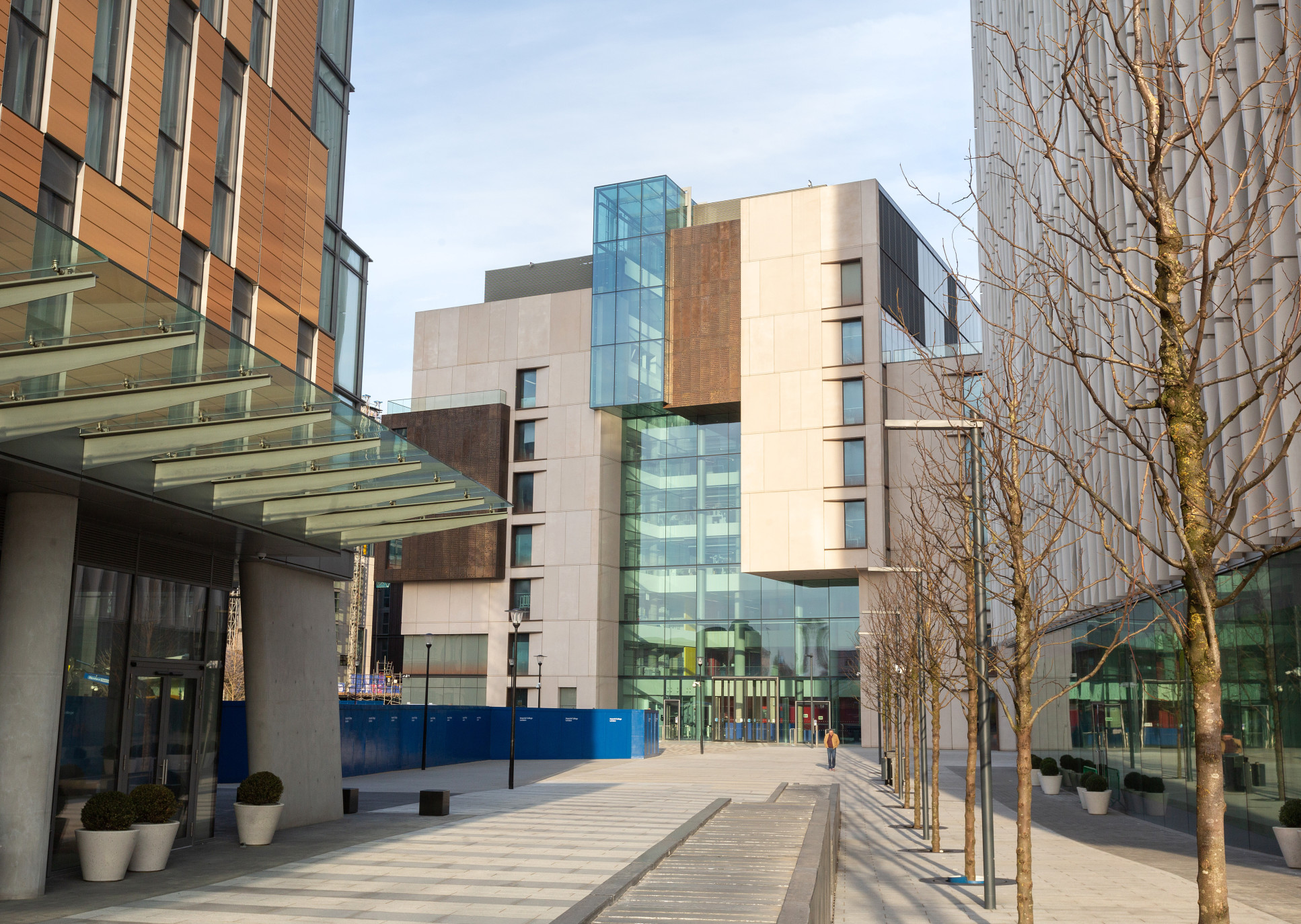
While Imperial’s main campus is in South Kensington, the College is based at seven other locations in London, including in White City and at the hospitals at Charing Cross, Chelsea and Westminster, Hammersmith, Northwick Park, the Royal Brompton, and St Mary’s. The College also has the Silwood Park Campus near Ascot, which focuses on ecology, evolution and conservation. Learn more about each campus on the Imperial website.
Alongside these, the White City Campus is Imperial’s new 20-acre development in West London, a planned £2 billion investment that brings together world-class researchers, businesses and partners from academia to work, share ideas and turn cutting-edge research into benefits for society.
The campus is located in the heart of White City, one of London’s most exciting, dynamic and rapidly changing neighbourhoods. The area is home to pioneers in arts, culture, innovation, science and learning – organisations like BBC Media Village and the Royal College of Art.
We’re committed to making a positive impact, working with the local community to create new opportunities, develop talent and make tangible improvements in areas like education, employment, enterprise and health. Two cornerstones of this effort are the Invention Rooms and the new School of Public Health, both exciting and important ways for us to work with our local communities.
A state-of-the-art translation and innovation centre at White City, the I-HUB, has a vibrant incubator and is attracting exciting new enterprises. In 2018, a brand new cutting-edge facility for chemists and multidisciplinary researchers, the Molecular Sciences Research Hub, opened. The new Sir Michael Uren Biomedical Engineering Research Hub, also at the White City, co-locates engineers, scientists and doctors to help solve complex medical challenges. It has been made possible through a generous donation of £40 million from Sir Michael Uren, an Imperial alumnus. Imperial has also launched an ambitious £100 million campaign to support the development of a new, innovative and interconnected School of Public Health at the White City Campus which will pioneer new approaches to society’s most pressing healthcare challenges.
At Imperial, we have a global footprint, too. The College established a new medical school, the Lee Kong Chian School of Medicine, in partnership with Nanyang Technological University, in Singapore, and admitted its first students in 2013. We also have many highly successful academic collaborations with institutions around the world, ranging from biomedical imaging with Tsinghua University in Beijing to quantum computing with MIT in Boston.
Influence and Outreach
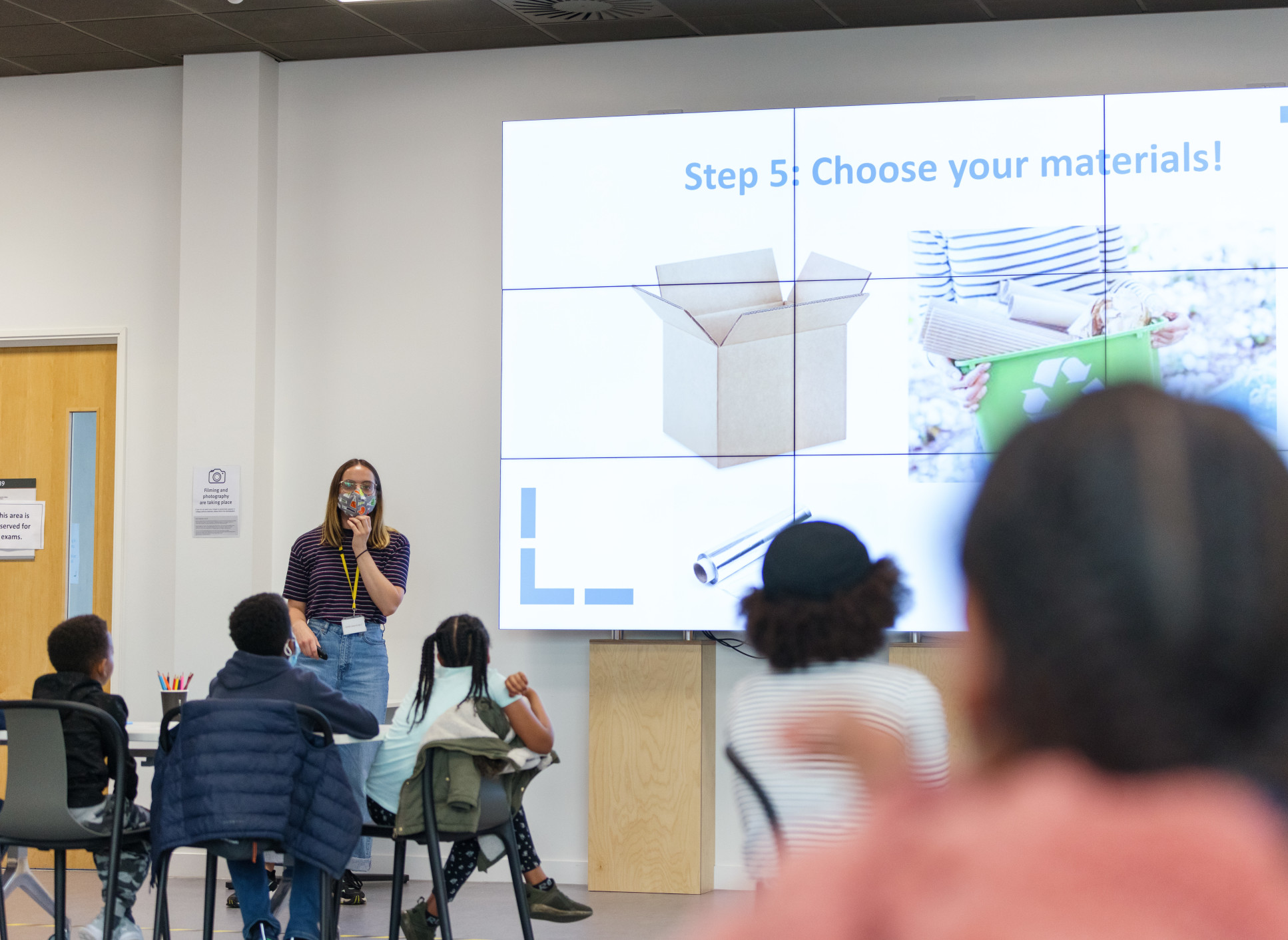
In addition to its transformative scientific discoveries, Imperial aims to make a positive impact on communities, both locally and throughout the world.
From working with schools and businesses to the now-famous Great Exhibition Road Festival – which in lockdown delivered hundreds of engaging events from a Lates programme to livestreamed discussions, events and activities for all ages – the College invests in its outreach activities to broaden the impact of its benefits to society.
The Invention Rooms at White City, for example, is a highly innovative programme that brings maker spaces and hackspaces together for university-industry collaborations. It is open to the wider community so that locals of all ages, from schoolchildren to older people, can join in making discoveries and inventions.
Imperial’s widening participation policies and practices encourage entry to higher education, particularly in STEM subjects. A range of measures encourage pupils from disadvantaged backgrounds to aspire to higher education, including the provision of special courses, practical help in the application process and support to schoolteachers in science education. Our new Imperial College London Mathematics School will be a government-backed specialist school for sixth-form students doing maths and further maths. It will focus on supporting students from BAME groups, female students, and those from disadvantaged and under- represented communities.
The primary objective of these activities is to increase awareness among young people of the importance and excitement of science and the value of attending a leading university.
Equality, Diversity and Inclusion
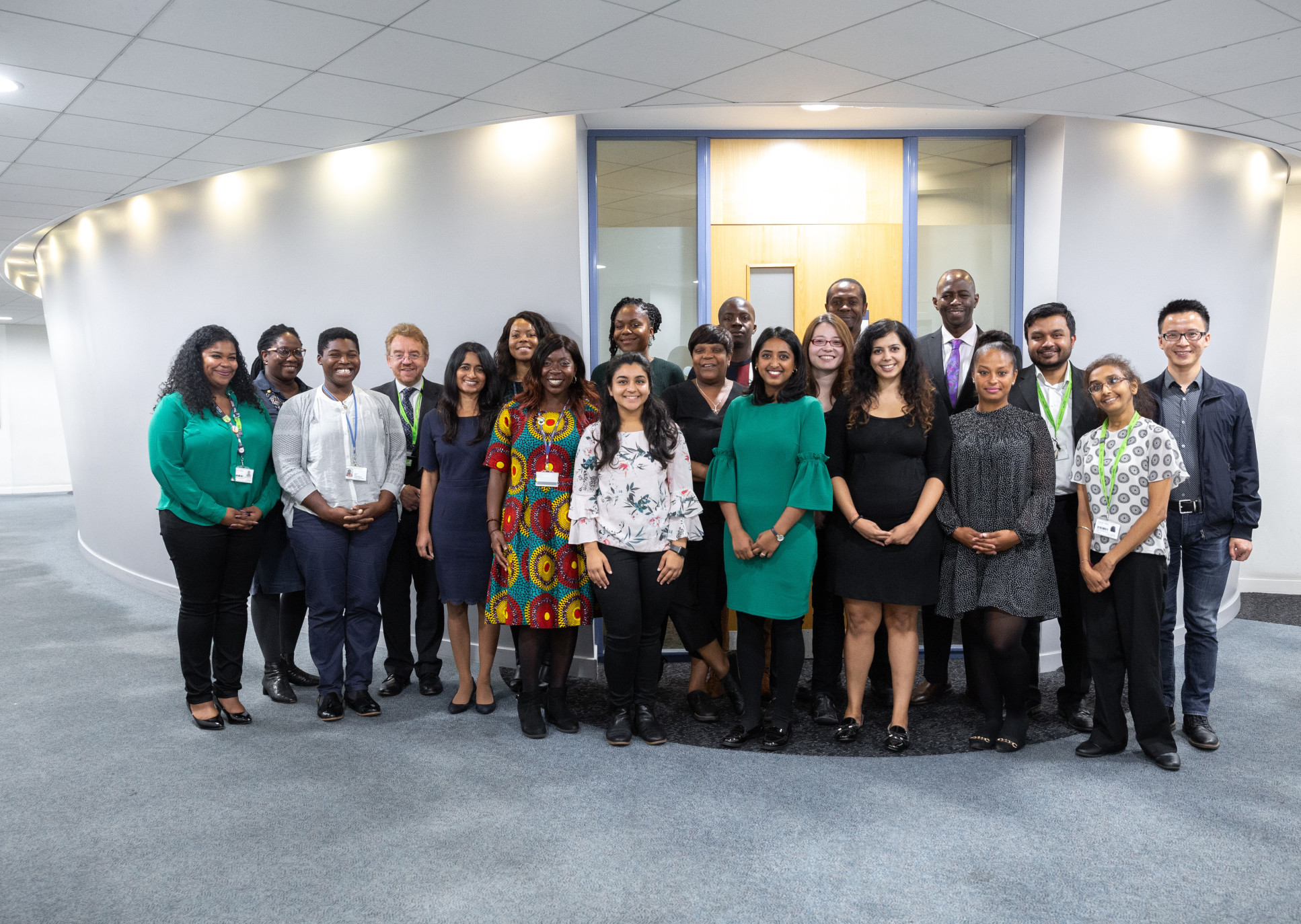
As a leading institution in the heart of London, Imperial College proudly upholds a longstanding commitment to equality, diversity and inclusion. Valuing the diversity of our community is one of the four cornerstones of our recent strategy and we further inclusion and equality through numerous formal and informal practices across our institution.
Our aim is to embed equality, diversity, and inclusion into all of our work at Imperial. We take pride in our declared mission “to achieve enduring excellence in research and education in science, engineering, medicine and business for the benefit of society.” This reflects our civic role as a repository for knowledge and culture, as an institution that fosters independent and critical reflection, and as an agent of positive societal change.
As a university, we are defined by our community of staff and students. Therefore, we will only succeed in our mission by cultivating an environment that respects, supports and celebrates all the people who come to Imperial, enabling them to enrich the world and their own lives through work and study.
Why embracing equality, diversity and inclusion matters
Embracing equality, diversity and inclusion is not simply a matter of complying with the law, though clearly we are bound by its provisions. Nor is it simply a matter of social justice, though as a public institution it is absolutely right that we should strive to be representative of the society we serve. Nor is it an alternative to traditional notions of excellence.
Rather, our commitment to equality, diversity and inclusion recognises the fact that excellence comes in forms that are changing as fast as changes in society. If Imperial is to thrive in a world that has never been more diverse and inter-dependent, and to play its full part in advancing social progress and mobility through research, teaching, clinical practice, entrepreneurship, outreach and public engagement, we must become more cognisant of the benefits that will flow from moving equality, diversity and inclusion to the heart of our institution.
Staff Recognition
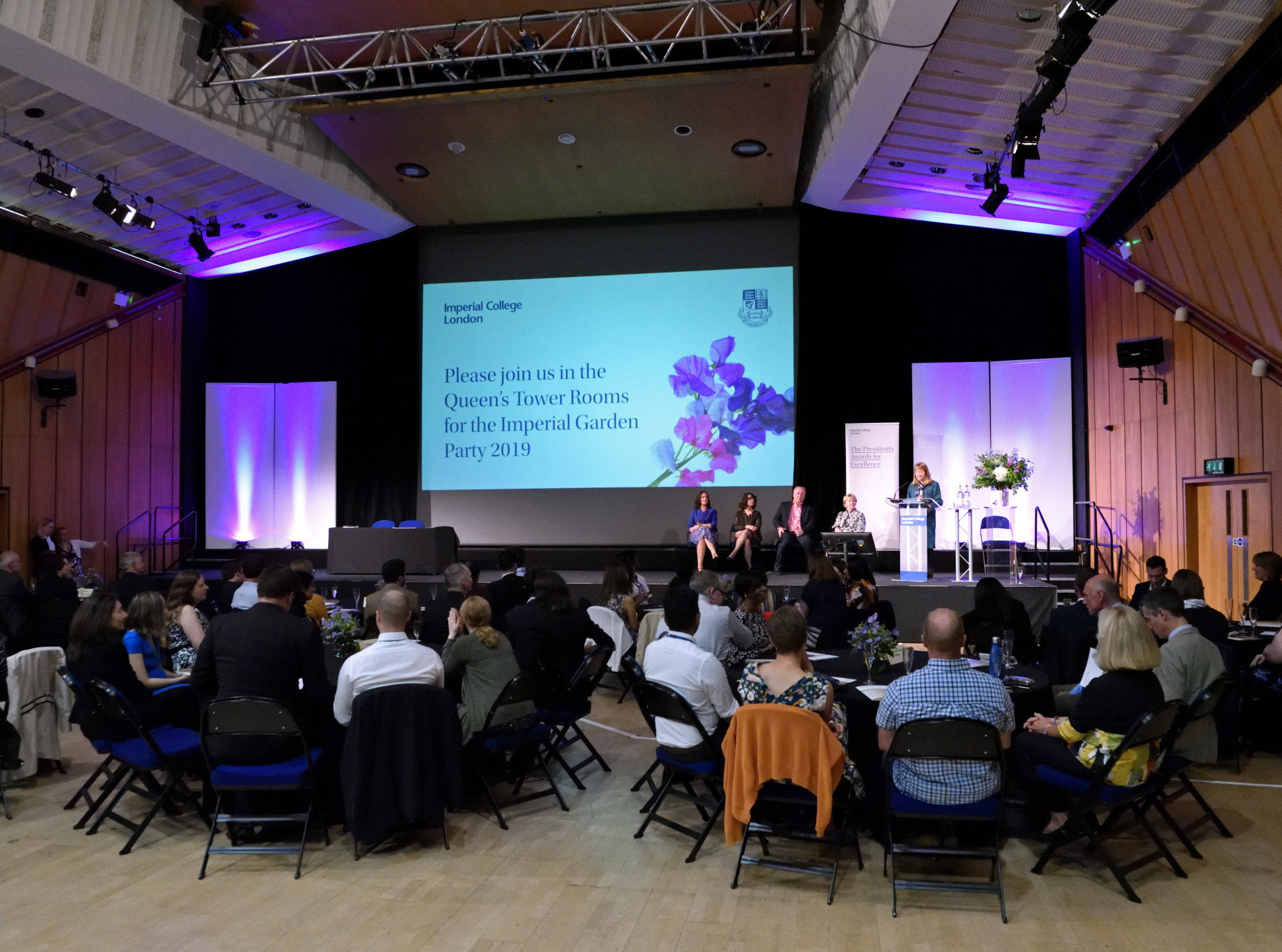
The College is very proud of its staff, of their many talents, contributions to world class research and to teaching some of the brightest students in the world. We offer extensive support for them to pursue their research including Faculty-based research services teams, central strategy, research proposal and intellectual property guidance, scholarly communication and open access and research data management. Teaching and postgraduate supervision is also strongly supported and continuously strengthened, through training programmes and workshops.
Imperial is committed to building a supportive, inclusive and highly motivated staff community across all disciplines, functions and activities. As part of this commitment, we have created a number of staff recognition awards to recognise and celebrate the achievements and hard work of our staff. These awards are for all staff, at all levels, across research, teaching and professional services roles, who have shown outstanding commitment and demonstrated a valuable contribution to the College's mission such as:
- President’s Awards for Excellence in Culture and Community
- President's Awards for Excellence in Education, Research, and Societal Engagement
- Julia Higgins Medal and Awards
- Provost's Awards for Excellence in Health and Safety
- Provost's Awards for Excellence in Animal Research
- Imperial Garden Party, an annual event which celebrates all staff and students who have been nominated by their managers, peers and colleagues for their vital contributions to the College over the last year. It also recognises staff who have supported important projects, provided excellent service and taken on new challenges.
Supporting our Staff
Pride in the work of our staff and the College:
- An inclusive, supportive, multi-cultural community where every individual feels that they belong
- A community where all interactions are respectful and where every role is recognised as being important to the College's mission
The development of staff and their high performance potential:
- An academic promotion framework to recognise academic success and growth in roles, specialist expertise and responsibilities
- Talent programmes to support progression and strengthen existing high performance, such as the Academic Leadership Programme and the Female Academics’ Development Centre which offers targeted support, career guidance and mentoring
- A skills development programme to enhance potential and meet the College’s strategic objectives
- Faculty-specific learning and teaching development programmes
- An annual personal review and development discussion for all staff, followed by regular feedback
- A minimum of five days per annum development time tailored to an individual's role and career path
Sector leading pay and benefits:
-
Our Total Remuneration Package (TRP) for staff is a key component of realising the College’s strategic aim. The TRP is the overall package of pay, recognition, pensions and other benefits by which we compensate staff for their contributions to Imperial’s mission.
Supporting well-being:
- The College supports many initiatives to support staff in their personal life (flexible working, private health insurance, staff networks, support for staff, childcare and carers
- Benefits to support an active lifestyle and health initiatives, such as free health checks for over 50s and cycle to work scheme, whereby you apply for an interest free loan for the purchase of a bicycle to encourage cycling to work for fitness.
Childcare on Campus
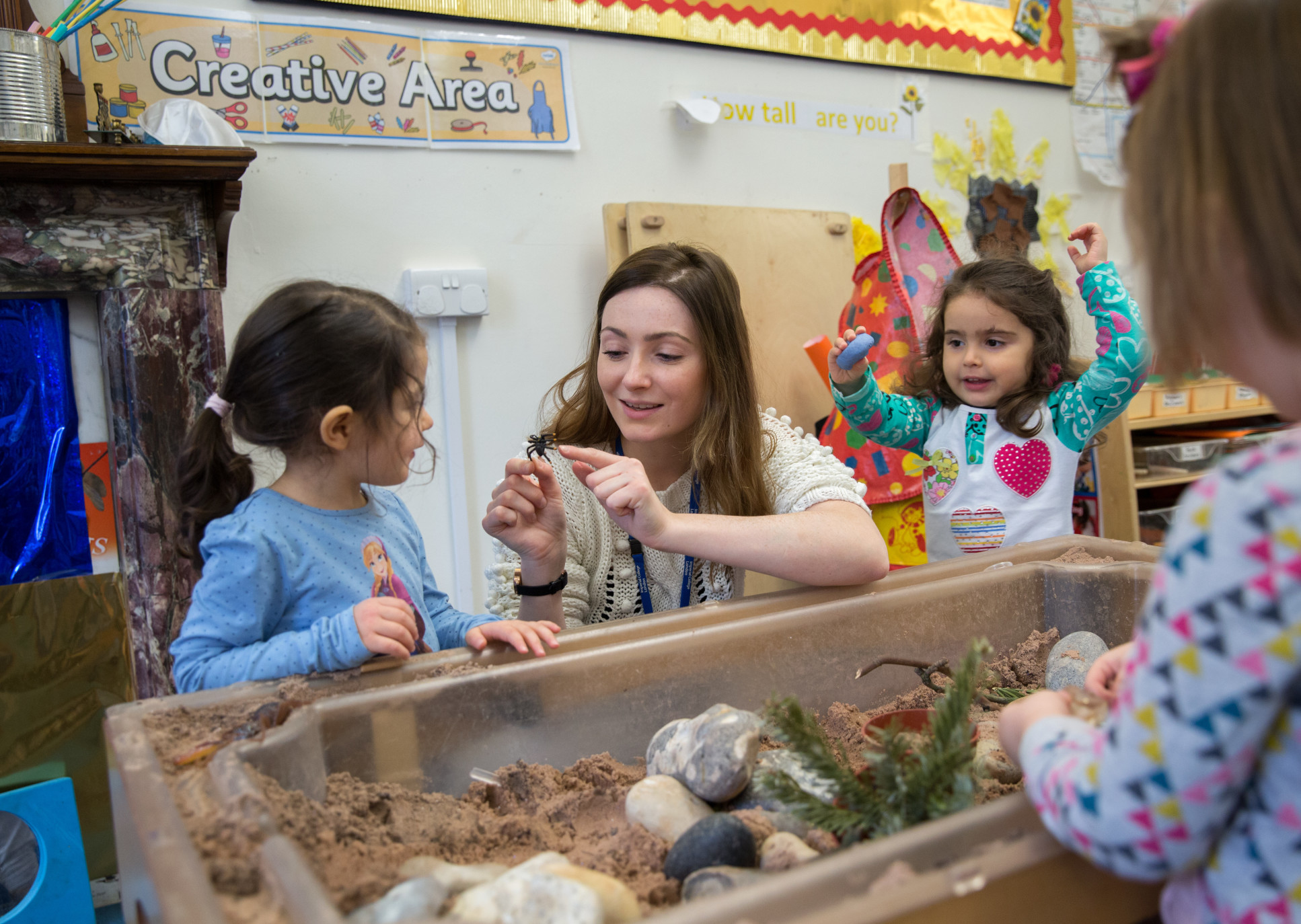
Our staff have access to the Early Years Education Centre which is the College’s ‘Outstanding’ Ofsted rated nursery, located at the South Kensington Campus. The EYEC caters for children of six months to five years and has capacity for 154 children and it is expanding. It is set across two Victorian townhouses on the College’s South Kensington Campus, and has its own garden and sensory room. All staff working directly with children have specialist training, and children benefit from continuity of care.
Imperial offers support with EYEC fees in the form of a salary sacrifice scheme enabling parents to pay fees before tax and national insurance contributions are taken. A reduced fee rate is available for students.
Old Oak Early Years Centre
Old Oak Early Years Centre is a new nursery for Imperial parents in West London. It is a partnership between Old Oak Primary School and Imperial College London.
This new facility is available for parents at the Hammersmith and White City campuses. It is situated in a newly refurbished space that will initially welcome 20 children - from 6 months to 5 years - into a stimulating and nurturing environment.
Affiliated nurseries
For Imperial parents who aren't based at South Kensington Campus, or cannot easily access Early Years nursery, we have affiliations with some nurseries local to other campuses.
Awards

Disability Confident leader
Imperial is a Disability Confident leader












